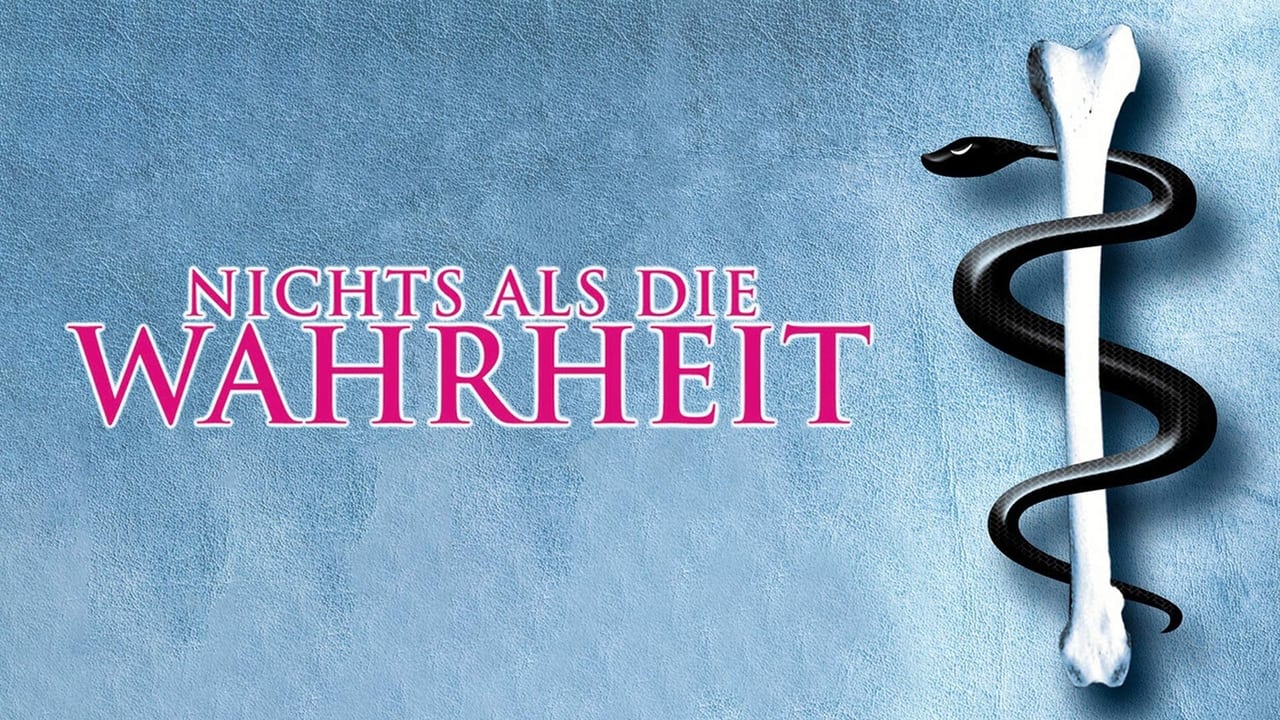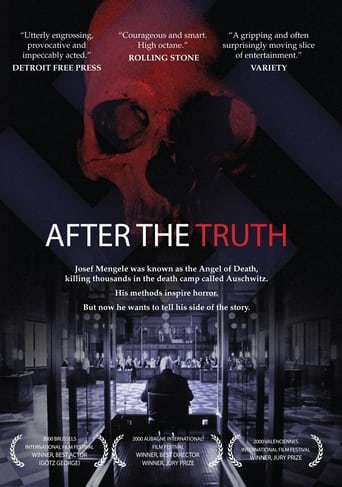

In the late 90's, Jack and Kathy Riley wrote an excellent script called "After the Truth," a thriller/legal drama about a German lawyer who found himself unwillingly having to defend "the Butcher of Brussels" in court. I was fortunate enough to read a copy of this script before I saw the film; it was exciting and fascinating, and the moral of the story - to cherish every life - was abundantly clear.Unfortunately, the English-language script ended up getting made by a German production company. Whether something just ended up getting lost in the translation, or whether changes were made for other aesthetic reasons, the finished product doesn't really resemble the original script.The main character is changed from a sympathetic, family-loving character who is put in a bad situation, into an unsympathetic character who's mean to his wife and seems to partly agree with the "Butcher." As another poster commented, one gets the impression that the "Butcher" thinks of himself as noble and that no one is willing to challenge him on this.So while I agree that the film doesn't quite work, I would hasten to add that the original intent of the Rileys' script was not truly maintained. So for any potential bad messages in the film, the blame cannot be laid at their feet.To be fair, the film has some good acting, and there are some chilling moments as well. Besides, this is (I believe) the first German-language film that even acknowledges that the Holocaust ever happened. Surely that's a step forward, isn't it?
... View MoreThe story of Nazi collaborators being brought to justice would not seem interesting anymore in these days, even with the emergence of extreme Nationalistic tendencies in several places out of Germany, but Roland Suso Richter made an intelligent and moving drama, based on a fantasy. Suppose that "The Angel of Death of Auschwitz", Dr. Josef Mengele (who never faced German justice and died in Brazil) had come back to Berlin, selected a bright young lawyer (Peter Rohm) for his defense, and asked to be judged to set the facts straight, or to put it in his words, "to let the Truth be known". The lawyer's only strategy is to interpret Mengele's actions under the medical ethics of his time, and in a way he succeeds to prove that Mengele was just acting according to the common notion in Nazi Germany, that doctors could and should dispense of lives that weren't worth-living. But there's more to it. Although the script (by Johannes W. Betz and Christopher and Kathleen Riley) makes a fine tapestry of past and present (and includes a disturbing final speech by Mengele) and the camera-work by Martin Lager is first rate, director Richter does not incurs in flashy style. His mise-en-scene is elegant and confident, immensely helped by the excellent performances by Götz George as Mengele and Kai Wiesinger as Rohm.
... View MoreThis film is absolutely wonderful. Not in the way that it makes you feel good, oh no! It seduces you to try to understand the deeds of one of the most famous and feared Nazis ever: Dr. Josef Mengele. It leads you to the point where you have to declare where your own point of view is located without offering the easy way out...
... View MoreThis is a disturbing movie, a courtroom drama in which a man claiming to be Josef Mengele voluntarily returns to Germany for trial. He enlists an unwilling lawyer to defend him in a court of law. The lawyer must defend the indefensible, an act he finds personally repugnant but accepts because of a need to understand the holocaust and what let it happen. The answer seems to be that unspeakable evil lurks closer than one might comfortably imagine.
... View More